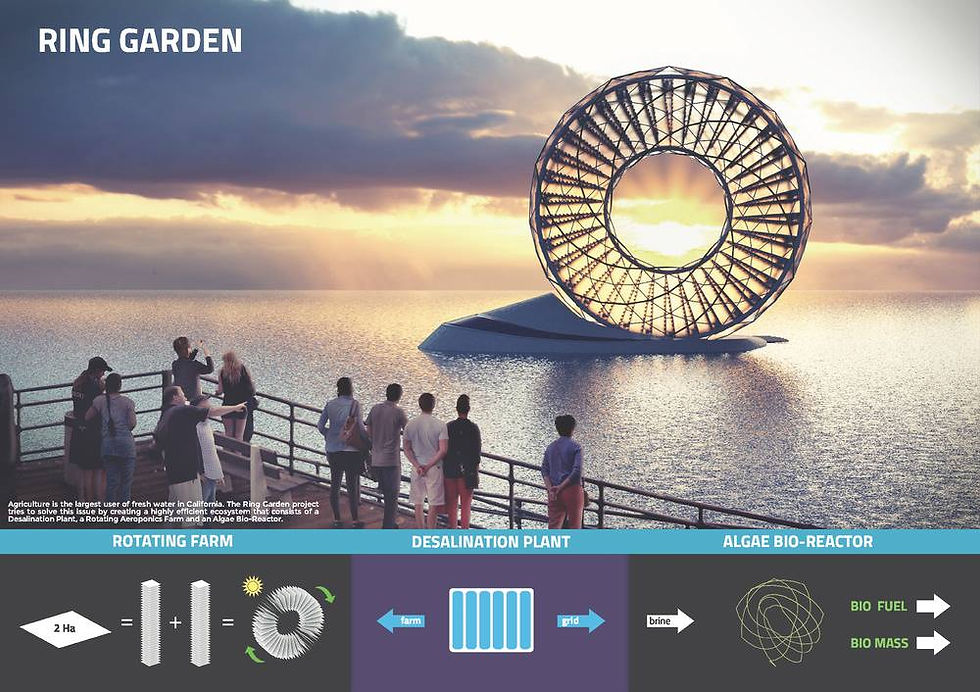The Beauty of Renewables
- Feb 8, 2018
- 2 min read
Have you ever thought that renewables were dull, visually polluting or economically inefficient?
This was the very question Elizabeth Monoian and Robert Ferry asked themselves when they started their project: the Land Art Generator Initiative (LAGI). The idea is simple: bring together people from various backgrounds to create sustainable energy infrastructures that contribute to the zero carbon goal, while adding an aesthetic and economic value to cities. The project takes the format of a biennial competition in which anyone can participate – you can participate if you are interested and the competition takes place near you! The winning team receives a prize and their project is built in cities, generating energy for local buildings and is very attractive to passers.

In 2009 the surface energy that needed to be replaced to make our planet viable again was of the size of Spain and Portugal. Although renewable energies are the most sustainable alternative in attaining the zero carbon goal, in certain areas, the doubt originated in the use of renewable energy as an efficient method was furthered by the appearance of these infrastructures. Hence, doubled to the feeling that there is no good alternative to conventional energy, the fear that this new form of energy would be a visual nuisance emerged. Ferry and Monoian’s idea is to reconcile people with the use of renewable energies, and even more, to make them interested and eager to appreciate it. They presented aesthetics as a key integrator of clean energies.
Beyond the Wave, Heerim Architects & Planners
Energy Technologies: organic thin film
Annual Capacity: 4,229 MWh

Although the objectivity of “beauty” is questionable – it doesn’t always suit everyone’s taste – it certainly needs to create interest and attraction. As an illustration of this point, take a look at the “Energy Duck” on the left, the 2014 winning photovoltaic artwork, still in use in Copenhagen. Visually disturbing for people walking around, it generates electricity for some 40 households living nearby. The question is not whether you like it or not, but whether you are attracted to it, or if it piques your curiosity, enough for you to snoop online and find more about it. This is how the power of renewables should be advertised: don’t make people upset towards the planet by setting rules, make them like it to launch a change!
No need to be a genius, just do what you are good at, find yourself a team and ideas topped with some creative and practical skills, the rest will follow! For more information about how competitions are organised, and where they will take place, check their website.
Check out some of the projects submitted at the past competitions:

Solar Hourglass, 1st Place Winner LAGI 2014 Copenhagen
Santiago Muros Cortés
Energy Technologies: concentrated solar power (thermal beam-down tower with heliostats)
Annual Capacity: 7,500 MWh

Ring Garden Location: Bucharest, Romania

Location: Los Angeles, USA
Energy Technology: photovoltaic panels, electrolysis, artificial photosynthesis for solar fuel
Water Technology: Atmospheric Water Generation
Annual Capacity: 5,000 MWhe and 100,000 liters of drinking water

Prismatic Streams Location: Taipei, Taiwan





Comments